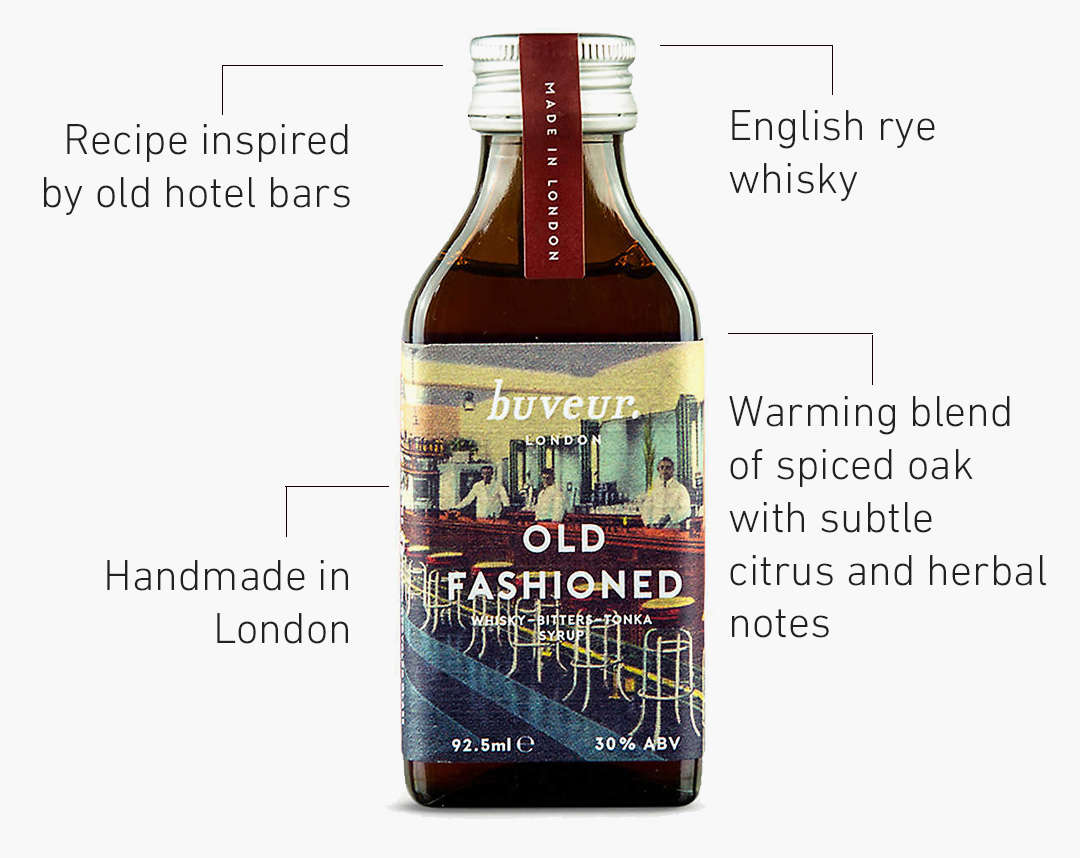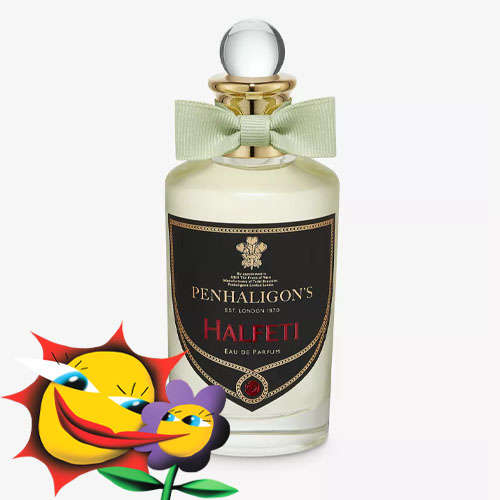- Australia / AUD $
- Canada / CAD $
- China / CNY ¥
- France / EUR €
- Germany / EUR €
- Hong Kong SAR China / HKD $
- Ireland / EUR €
- Italy / EUR €
- Japan / YEN ¥
- Kuwait / USD $
- Macao SAR China / HKD $
- Netherlands / EUR €
- Qatar / USD $
- Saudi Arabia / USD $
- Singapore / SGD $
- South Korea / KRW ₩
- Spain / EUR €
- Taiwan / TWD $
- United Arab Emirates / USD $
- United Kingdom / GBP £
- United States / USD $
- Not yours? Read more
Tell us what you think
Shop in your local currency and language
You are currently in Singapore SG / SGD $ store
- English
- English
- English
- English
- English
- English
- English
- English
- English
- English
- English
- English
- English
- English
- English
- English
- English
- English
- English
- English
- English
Did you know that we deliver to 130 countries or regions and offer a range of delivery options to suit you wherever you are in the world? Find out more
Sign up once to our Selfridges+ service and you can enjoy unlimited deliveries wherever you are in the world. FIND OUT MORE
International delivery
With almost everything on selfridges.com available for International Delivery, you can send your order to 130 countries or regions around the world, including North America, Australia, the Middle East and China.
Although we only offer 20 currencies to browse in online, you can still deliver to all of the following countries or regions:
- Algeria
- Andorra
- Antigua and Barbuda
- Aruba
- Australia
- Austria
- Azerbaijan
- Bahrain
- Bangladesh
- Barbados
- Belarus
- Belgium
- Belize
- Bermuda
- Bolivia
- Botswana
- Brunei
- Bulgaria
- Cambodia
- Canada
- Cayman Islands
- Chile
- China
- Colombia
- Costa Rica
- Croatia
- Cyprus
- Czech Republic
- Denmark
- Dominica
- Dominican Republic
- Ecuador
- Egypt
- El Salvador
- Estonia
- Finland
- France
- French Guiana
- Germany
- Gibraltar
- Greece
- Grenada
- Guadeloupe
- Guatemala
- Guernsey
- Guyana
- Honduras
- Hong Kong
- Hungary
- Iceland
- India
- Indonesia
- Ireland
- Israel
- Italy
- Jamaica
- Japan
- Jersey
- Jordan
- Kazakhstan
- Kenya
- Kuwait
- Laos
- Latvia
- Lebanon
- Lesotho
- Liechtenstein
- Lithuania
- Luxembourg
- Macau
- Malaysia
- Maldives
- Malta
- Martinique
- Mayotte
- Mexico
- Monaco
- Montserrat
- Morocco
- Myanmar
- Namibia
- Netherlands
- New Zealand
- Nicaragua
- Nigeria
- Norway
- Oman
- Pakistan
- Panama
- Paraguay
- Peru
- Philippines
- Poland
- Portugal
- Puerto Rico
- Qatar
- Reunion
- Romania
- Rwanda
- Saint Kitts and Nevis
- Saint Lucia
- Saint Martin (French part)
- San Marino
- Saudi Arabia
- Serbia
- Singapore
- Slovakia
- Slovenia
- South Africa
- South Korea
- Spain
- Sri Lanka
- Suriname
- Swaziland
- Sweden
- Switzerland
- Taiwan
- Tanzania
- Thailand
- Trinidad and Tobago
- Turkey
- Uganda
- Ukraine
- United Arab Emirates
- United Kingdom
- United States
- Uruguay
- Venezuela
- Vietnam
Cheers to our favourite
INDEPENDENT British drinks makers
Words: Amy Newson
For the insider knowledge on what it takes to make a seriously good bevvy (plus advice on how to fix the best drinks at home), we quizzed four of Britain’s finest drinks makers, from earth-conscious distillers to ready-made cocktail experts. Cheers!
James Chase from Chase Distillery, Herefordshire
Based in the Herefordshire countryside, Chase Distillery makes all of its delicious drinks on its own farm. Everything is produced with sustainability in mind – from its award-winning field-to-bottle vodka (all potato waste from the process fertilises the soil or feeds the herd of Hereford cattle) to the traditionally copper-pot-distilled Great British gin. We caught up with Chase Distillery Director James Chase to find out more…
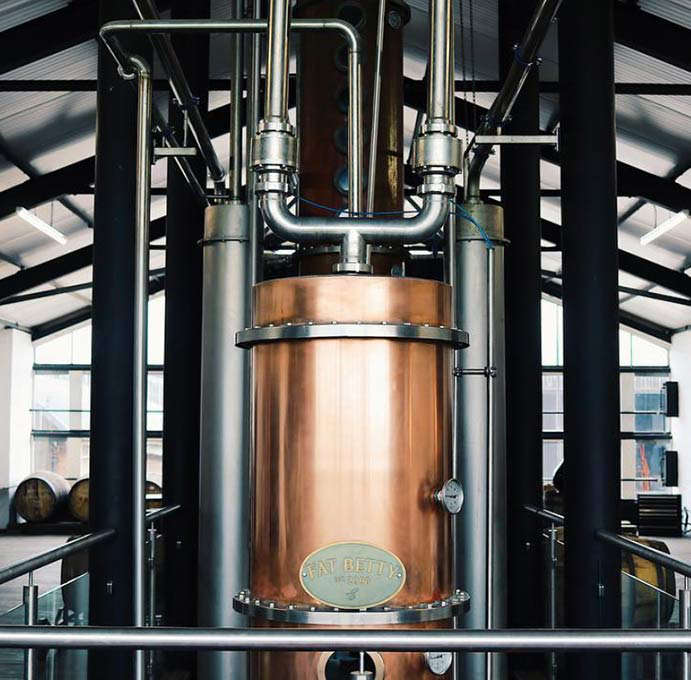
Fat Betty - one of the copper-pot stills at Chase Distillery
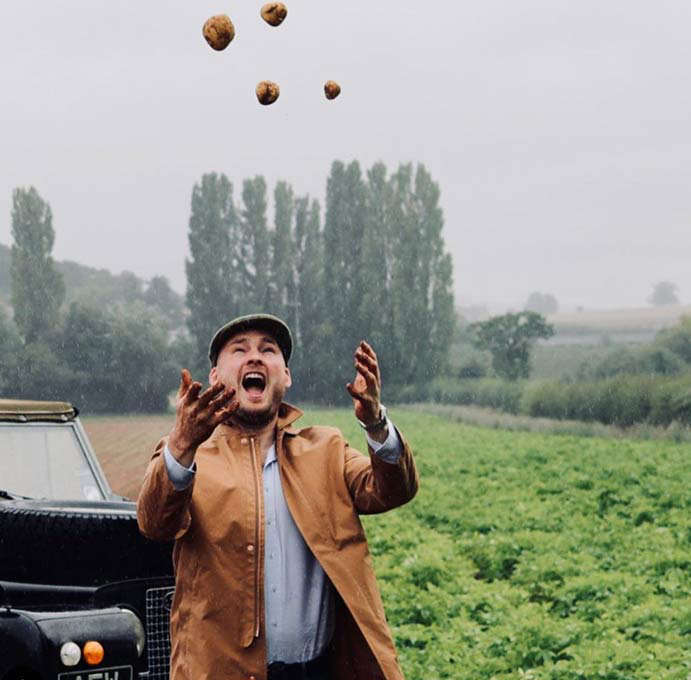
James Chase - Director at Chase Distillery
How was Chase Distillery founded?
Chase Distillery was founded in 2008, when we made the unusual choice to make spirits from potatoes. As farmers with a passion for making things from scratch, we wanted to celebrate what grows best in our county: the humble potato.
How does Chase’s distilling process work?
Fat Betty, Maximus and Ginny (our set of copper-pot stills and a rectification column) are the beating heart of our distillation process. Our potatoes are fermented and distilled into 96% alcohol before being diluted and bottled into Chase Vodka, or we go on to redistil the spirit with chosen botanicals to make our range of gins.
Vodka isn’t usually associated with British distilling; how does Chase vodka differ from its Russian and Eastern European counterparts?
It’s not, and it was quite a shock to aficionados when we won ‘World’s Best Vodka’ at the San Francisco World Spirits Competition in 2010! Russian vodkas are usually made from a grain base, which gives the vodka quite a different texture on the palate and taste. I may be biased, but the potato gives the spirit a rich mouthfeel, perfectly suited for a Martini or two…
If you’re planning a dinner party with your household (or a virtual drinks gathering), try buying a few vodkas from different bases (wheat, grape, potato and rye), stick them in the freezer and serve them alongside some cheeses and meats. You can talk about the different tastes and textures for hours!
- James Chase, Director of Chase Distillery
Why is sustainability important to Chase?
We have always believed that the closer you are to the source of your food and drink, the better. The Earth’s resources are all we have to sustain us, so let’s look after her the best we can and support producers and farmers who hold their sustainability credentials high.
How is Chase adapting to the current climate?
In response to the growing situation around COVID-19, we have started to use our stills at The Chase Farm to produce alcohol that is then converted into hand sanitiser. We will have soon donated 30,000 units to front-line medical professionals and key workers in our local Herefordshire and Worcestershire areas.
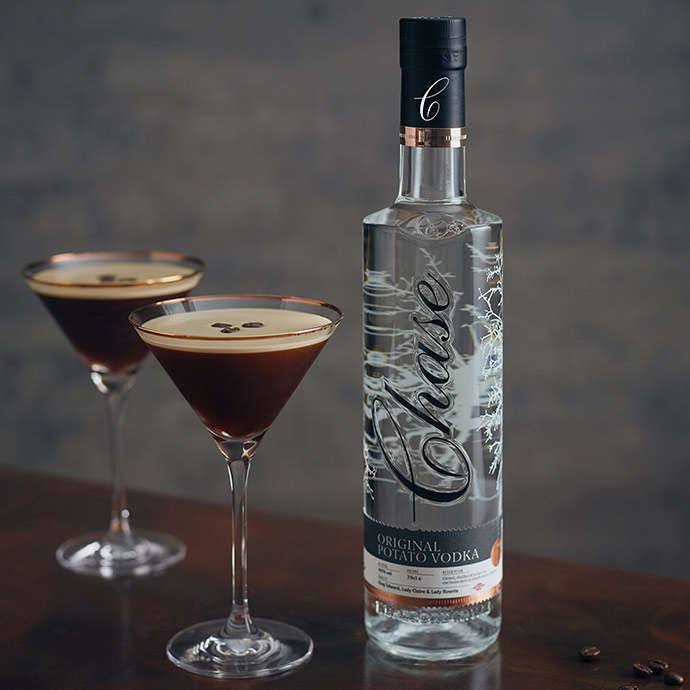
The Chase Espresso Martini
INGREDIENTS
60ml Chase Potato Vodka*
30ml freshly brewed espresso*
15ml coffee liqueur
15ml sugar syrup
*Alternatively, use 90ml Chase Espresso Vodka
METHOD
Put all the ingredients into a cocktail shaker with ice and shake well. Double strain into a martini glass or coupe and garnish with a couple of coffee beans.
Henry Connell and Alex Thraves from The Uncommon, London
Founded by English-wine enthusiasts Henry Connell and Alex Thraves, The Uncommon is serving up the first English sparkling wine in a can. Revolutionising the way we drink vino, these wine buffs are passionate about English-grown grapes, recyclable packaging and, of course, delicious flavours. We caught up with Henry to find out a bit more…
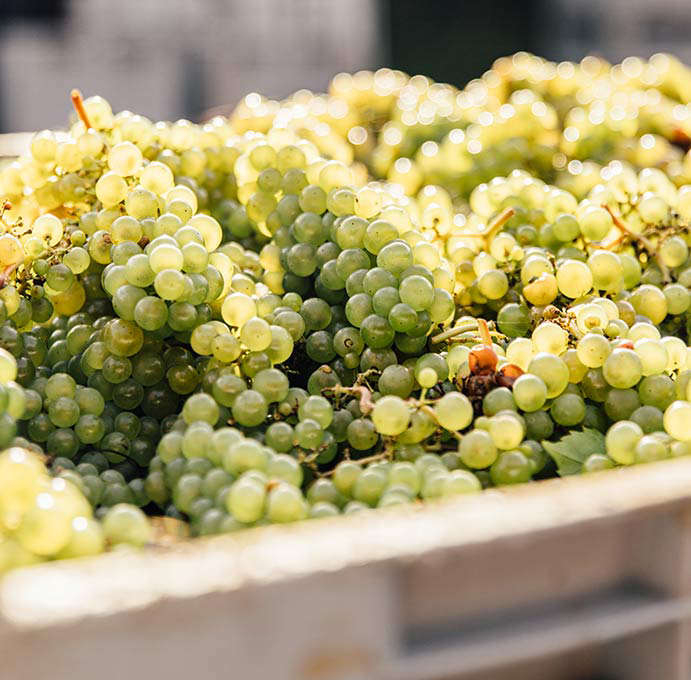
All of The Uncommon's wine grapes are grown in Surrey, Kent and Hampshire
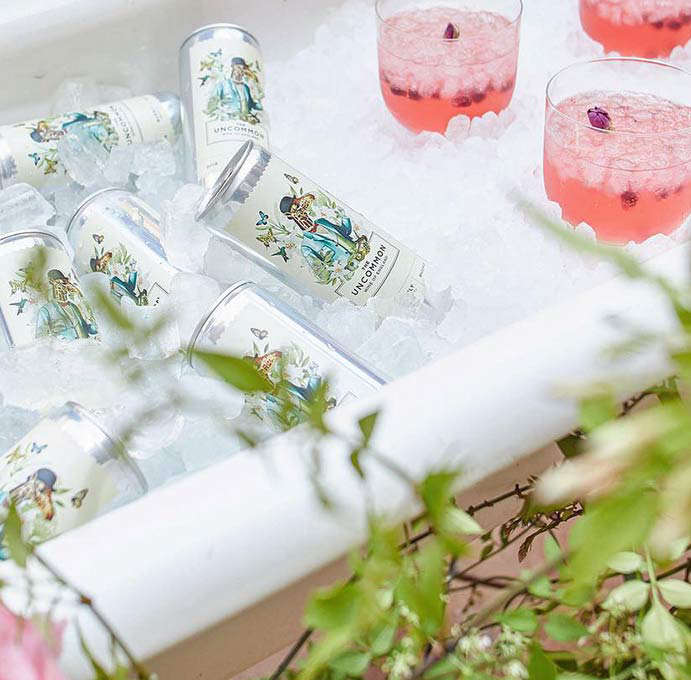
Packaging is 100% recyclable
How was The Uncommon founded?
We quit our nine-to-fives in an effort to make wines for a new generation of drinkers. A drinker who is more adventurous, green-living and less concerned with pomp and circumstance, but still loves a really delicious sparkling wine.
How does your winemaking process work?
We have vines in Surrey, Kent and Hampshire, and our grapes are always hand-picked and sorted before being pressed and fermented in our winery in Surrey. This ensures high-quality wines and keeps our carbon footprint down, with low mileage during production.
What inspires your drinks?
England. Our countryside. Our parks. Our gardens. Our springtime. Our festivals. We want the wines to taste like everyone’s favourite memories. We know people want low-intervention food and drink that’s locally made and thoughtfully produced with little to zero waste, and that is what we strive for.
Tell us about the vineyards where you source your grapes.
We grow our Bacchus grapes in Surrey and our Chardonnay, Pinot Noir and Pinot Meunier (the three Champagne varieties) in Kent and Hampshire. They are all on well-draining, south-facing, chalky soils – similar to our Champagne pals – and they produce some of the finest high-acid berries in the country.
What would you say to someone who says good wine can’t be made in Britain?
Ha! Objectively speaking, English winemakers are scooping up awards left, right and centre. Our climate is still too marginal to make much red, but the white, rosé and sparkling English wines are delightful – ours included. So, we would have to very politely, totally disagree!
The Uncommon, Bubbly Rosé
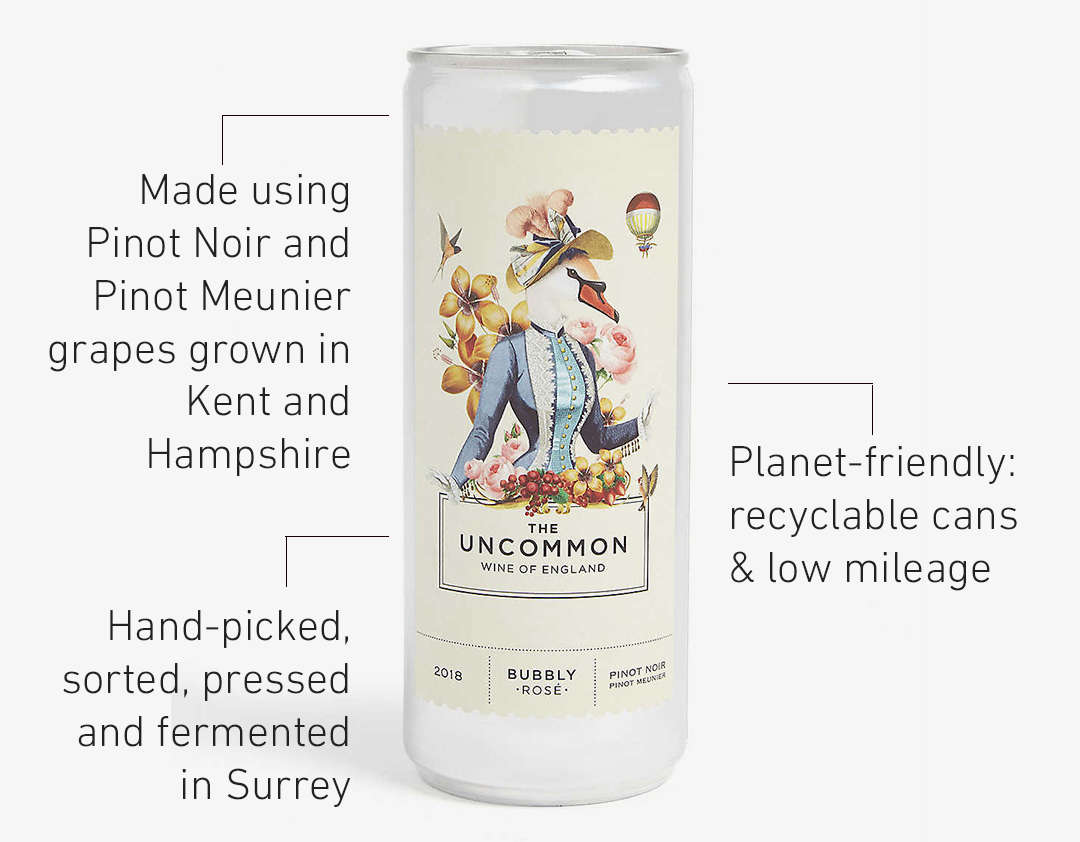
The best in barware
Patrick Russell from Sipsmith, London
Founded in Hammersmith in 2009, Sipsmith is the first copper-pot distillery to open in London since 1820. Embarking on a mission to distil delicious gin, the brand has become a firm favourite of G&T lovers everywhere. Here, Sipsmith Key Account Manager Patrick Russell tells us why…
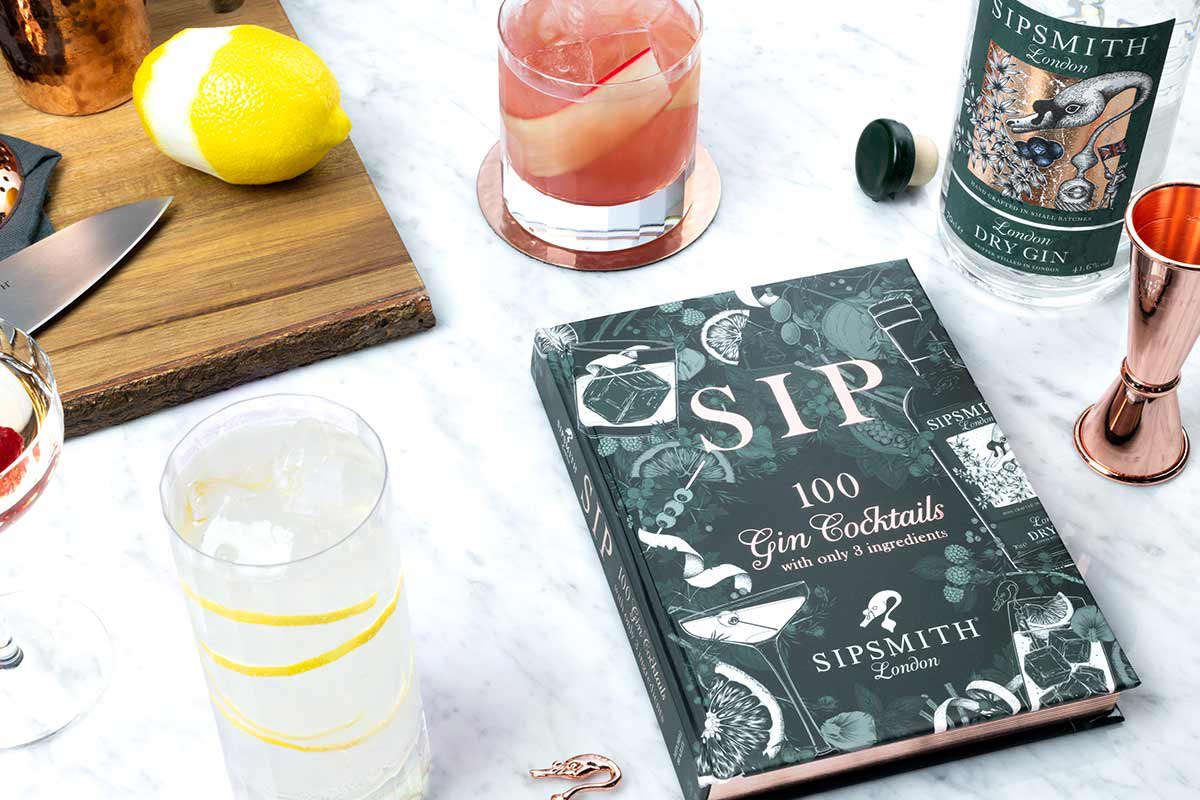
How does the Sipsmith distilling process work?
We make our spirits by hand, in small batches, with our team of dedicated distillers. Our botanicals are carefully sourced from all over the globe (our juniper berries are from Macedonia) and our carefully crafted recipe of botanicals is added to the stills the evening before distillation begins. We use a one-shot distilling process, ensuring only the best liquid is bottled and sipped.
What is your favourite drink to make with a Sipsmith spirit?
A classic G&T.
Tell us about some of your collaborations.
In 2019, we partnered with Sir Paul Smith to launch a one-litre bottle of our London Dry Gin, exclusively for Selfridges.
Two iconic British brands were brought together by an unrelenting passion for things well-made.
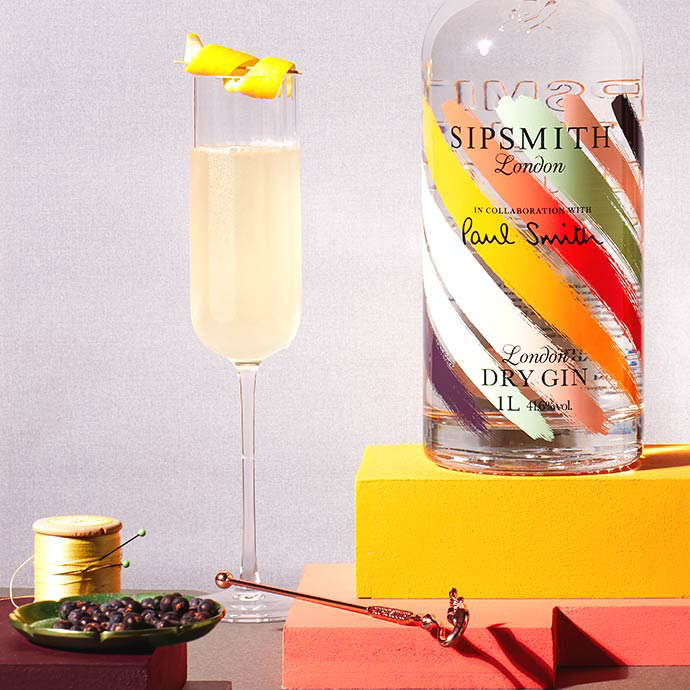
The Sipsmith French 75
INGREDIENTS
35ml Sipsmith London Dry Gin
20ml freshly squeezed lemon juice
10ml sugar syrup
Champagne
METHOD
Combine the gin, lemon juice and sugar syrup in an ice-filled cocktail shaker. Shake well. Strain into a Champagne flute or coupe. Top with chilled Champagne.
Rob Wallis and Sam Hunt from buveur, London
buveur, created by Rob Wallis and Sam Hunt, has cocktail enthusiasts all over the country raving about these bottled (and 100% vegan) tipples. Just pour over ice, start sipping and have a read of what Rob told us about his cocktails…
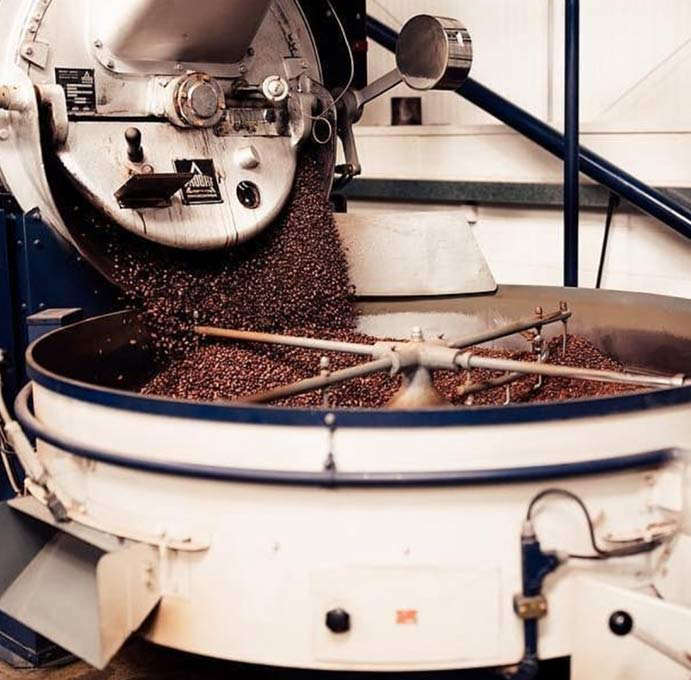
buveur's coffee grounds are recycled into sustainable fuel
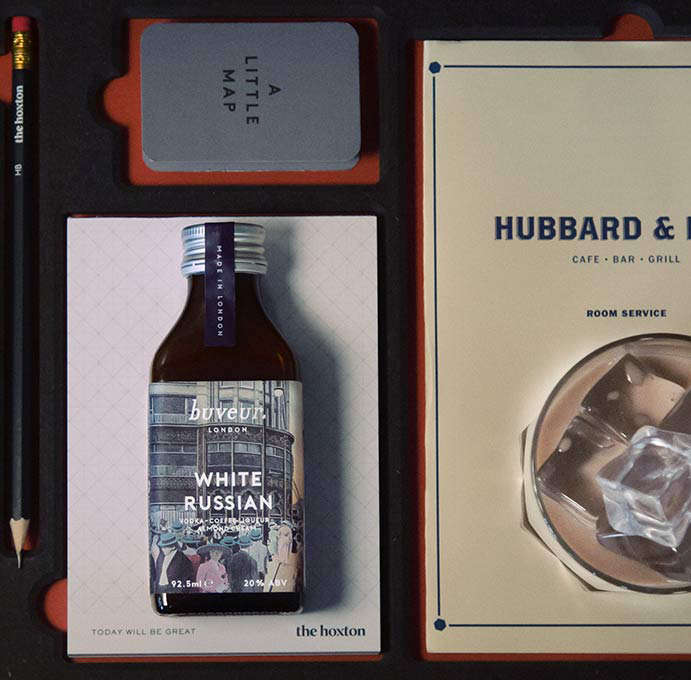
All buveur's recipes are vegan, including this delicious White Russian
How was buveur founded?
buveur was founded by two childhood friends, Sam and I. One day, I sent Sam a message with an idea: “I want to create the perfect bottled Old Fashioned.” Sam’s reply? “That’s not actually a terrible idea…” And from there, the idea grew. With Sam’s impeccable eye for design and my bartending expertise, that idea became buveur…
How does your cocktail-making process work?
Our cocktails are all made by hand in London, and although the spoon is a lot bigger and the shaker too big to pick up, the process is basically the same. We simply mix great spirits with great ingredients to precise measurements and bottle them for our drinkers to enjoy at home.
What inspires your drinks?
Our drinks are inspired by the original hotel bar recipes and the bartenders that created them. We’re inspired by the places where the bartender knew your name, wore white gloves and always ensured your drink was made just how you like it.
Tell us about your collaborations with your British suppliers.
Like any bartender, we’re only as good as the ingredients we use. Our suppliers are the best Britain has to offer, and we are immensely proud of the relationships we have with them. When we started, they put a huge amount of trust in letting an unknown brand use their products, and it is one of the most gratifying parts of the job so far to see that trust repaid by helping to introduce new customers to their work, showcasing their talents and putting new British spirits and ingredients on the map.
Why is sustainability important to buveur, and what measures do you take to be as sustainable as possible?
Sustainability is at the core of buveur. Making cocktails can be a bit wasteful at times, with fresh citrus thrown away, huge amounts of ice used and plastic discarded. We believe that you don’t need to sacrifice quality to be kinder to the planet, which is what we have worked towards since day one. All of our packaging is fully recyclable, we use recycled glass, we strive to ensure all the packaging used in our processes is either carbon neutral or part of a “closed loop”, and we even have our used coffee grounds collected and recycled into sustainable fuel by bio-bean Limited.
London is the global capital of cocktails: its great hotels, rich history and thriving scene mean the world looks to London for cocktail inspiration and excellence.
- Rob Wallis, Co-founder of buveur
buveur Old Fashioned
